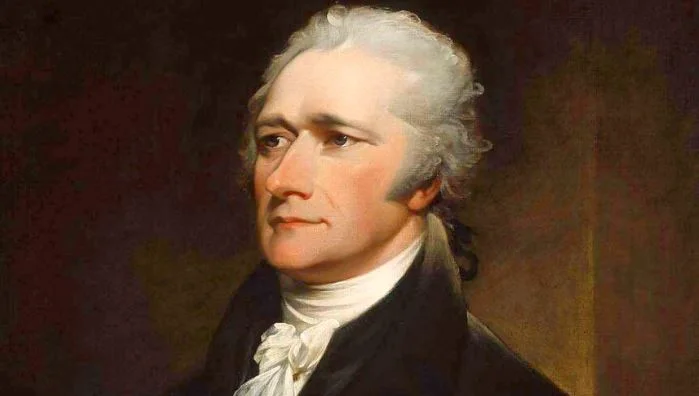
Alexander Hamilton Ethnicity and Parents Nationality
Alexander Hamilton, one of the Founding Fathers of the United States, is renowned for his contributions to the establishment of the nation’s financial system, authorship of The Federalist Papers, and his role as the first Secretary of the Treasury. Born on the island of Nevis in the Caribbean, Hamilton’s life story is as compelling as his political legacy. A figure of mixed heritage, his ethnicity and the nationality of his parents reflect the complex cultural tapestry of the 18th century. Understanding Hamilton’s lineage provides a deeper appreciation of his early struggles and the obstacles he overcame to rise to prominence.
Alexander Hamilton Ethnicity and Cultural Background
| Category | Politicians |
|---|---|
| Full Name | Alexander Hamilton. |
| Birthdate | January 11, 1755 |
| Birthplace | Greenwich Village, New York, United States. |
| Ethnicity | mix of European and African descent. |
| Father Ethnicity | Scottish descent. |
| Mother Ethnicity | mixed of French Huguenot and African descent. |
Alexander Hamilton’s maternal ancestry is a fascinating mix of European and African roots, reflecting the complex cultural dynamics of the Caribbean during the 18th century. His mother, Rachel Faucette, is widely believed to have been of mixed descent, with French Huguenot and African heritage. French Huguenots, known for their Protestant faith, had fled persecution in Catholic France, seeking refuge in various parts of the world, including the Caribbean. This European connection imbued Hamilton with a legacy of resilience and determination, traits often attributed to the persecuted Huguenot community.
Rachel’s African ancestry, though less documented, adds a layer of depth to Hamilton’s ethnic identity. Historians debate the specifics of this lineage due to limited records, but there is a general agreement that Rachel’s mixed heritage positioned Hamilton as a person of diverse cultural and ethnic background. This aspect of his identity likely influenced his perspective on social and political issues, providing him with a unique understanding of the complexities of identity in a colonial world.
Alexander Hamilton Scottish Roots
Hamilton’s father, James Hamilton, brought a distinctly European influence to his lineage. A Scottish immigrant from Ayrshire, James came from a family of landowners and carried the cultural and social norms of Scotland into his life in the Caribbean. This connection to the Scottish colonial elite added a European dimension to Hamilton’s ethnic identity, providing him with ties to a broader transatlantic cultural framework.
James’s Scottish heritage represented the influence of European colonization in the Caribbean, blending with the diverse cultural milieu of the region. Despite James’s eventual financial struggles and estrangement from his family, his lineage connected Hamilton to the broader world of European migration and settlement.
Alexander Hamilton Cultural Intersection
The convergence of Rachel Faucette’s multicultural heritage and James Hamilton’s Scottish roots positioned Alexander Hamilton at the intersection of two distinct worlds: the European colonial elite and the diverse, multiethnic society of the Caribbean. This blend of cultural influences likely contributed to Hamilton’s remarkable adaptability and resilience, traits that became hallmarks of his later political and intellectual achievements.
Hamilton’s mixed heritage was atypical for a man of his status in the 18th century, setting him apart in a society where lineage often determined one’s place. His ability to navigate these cultural complexities and rise to prominence speaks to his extraordinary character and determination.
Alexander Hamilton Siblings
Alexander Hamilton, one of the most influential Founding Fathers of the United States, was not an only child. In fact, he had an older brother named James Hamilton Jr., who, although often overlooked, played a significant yet understated role in Alexander’s early life. The relationship between the two brothers not only sheds light on their family dynamic but also provides valuable insight into Alexander’s formative years and the numerous hardships the Hamilton family faced. Moreover, examining this sibling bond helps us better understand the challenges that shaped Hamilton’s character and his eventual rise to prominence.
Alexander Hamilton Older Brother James Hamilton Jr.
James Hamilton Jr., Alexander’s only full sibling, was born around 1753 in the Caribbean, likely on the island of Nevis. As the elder son of James Hamilton Sr. and Rachel Faucette, James Jr. shared the burden of the family’s precarious circumstances. When their father abandoned the family in 1765, and their mother passed away shortly after in 1768, James Jr. and Alexander were left orphaned at a young age.
The brothers were deeply affected by these events, but their paths diverged significantly. While Alexander displayed a remarkable ambition to rise above his circumstances, James Jr. chose a quieter, less prominent life. Historical records suggest that James Jr. became a tradesman, possibly a carpenter, and remained in the Caribbean. Unlike his younger brother, James Jr. did not achieve fame or fortune, but his resilience amid hardship mirrored the strength of character shared by the Hamilton family.
Alexander Hamilton and James Jr. Diverging Paths
The bond between Alexander and James Jr. appears to have been strong during their early years, but it weakened as they grew older. After their mother’s death, the brothers were sent to live with different relatives or family friends. This separation, combined with Alexander’s departure to North America to pursue education and career opportunities, likely strained their relationship.
While Alexander Hamilton ascended to the heights of American political and financial history, James Jr. remained relatively obscure. There is little evidence to suggest that the brothers maintained close contact after Alexander’s emigration. However, their shared experiences of childhood adversity undoubtedly shaped their characters in unique ways.
Alexander Hamilton Half-Siblings and Extended Family
In addition to James Jr., Alexander Hamilton may have had other connections through his mother, Rachel Faucette. Rachel had been previously married to Johann Michael Lavien, a Danish merchant, and the couple had one son, Peter Lavien. This makes Peter Lavien Alexander Hamilton’s half-brother. However, their relationship was strained, as Peter inherited a portion of Rachel’s estate after her death, leaving little for Alexander and James Jr. This lack of support likely deepened Alexander’s resolve to create his own success.
Alexander Hamilton Professional Career
Alexander Hamilton’s professional career is a testament to his brilliance, ambition, and ability to navigate the complexities of a young nation. From his military service during the American Revolution to his pivotal role in shaping the United States’ financial system, Hamilton left an indelible mark on American history. His career spanned multiple fields, including law, politics, and economic planning, showcasing his diverse talents and unwavering dedication to the nation’s development.
Alexander Hamilton Early Career Military Service and Revolutionary War
Hamilton’s professional journey began with his involvement in the American Revolution. As a young man, he passionately joined the revolutionary cause, serving as an artillery officer in the Continental Army. His intelligence and leadership skills quickly caught the attention of General George Washington, who, recognizing his potential, appointed Hamilton as his aide-de-camp in 1777. In this pivotal role, Hamilton not only managed correspondence and drafted orders but also became a trusted advisor to Washington, earning his confidence and respect.
However, despite his significant administrative responsibilities, Hamilton yearned for combat and, as a result, eventually secured command of a battalion at the Battle of Yorktown in 1781. His decisive leadership during this crucial battle firmly cemented his reputation as a capable military leader, further elevating his standing and earning him respect among his peers. Consequently, his actions at Yorktown would mark a turning point, not just in the revolution, but in Hamilton’s own legacy.
Alexander Hamilton Legal and Political Career
After the war, Hamilton pursued a legal career, quickly establishing himself as a prominent attorney in New York. He became known for his eloquence and deep understanding of constitutional law, often taking on high-profile cases. Hamilton’s legal expertise and connections positioned him as a rising star in the newly formed United States.
Hamilton’s political career took shape during the drafting of the U.S. Constitution in 1787. As a delegate to the Constitutional Convention, he advocated for a strong central government, presenting a plan that emphasized federal authority. Although his vision was not fully adopted, Hamilton played a crucial role in the ratification process by co-authoring The Federalist Papers. These essays, written alongside James Madison and John Jay, remain a cornerstone of American political thought.
Alexander Hamilton Secretary of the Treasury
In 1789, President George Washington appointed Hamilton as the first Secretary of the Treasury. In this pivotal role, Hamilton devised a comprehensive economic plan that laid the foundation for the nation’s financial system. Among his key initiatives were the federal assumption of state debts, the establishment of the First Bank of the United States, and the implementation of excise taxes to generate revenue.
Furthermore, Hamilton’s vision extended beyond mere financial stability; he sought to foster industrial growth and strengthen the federal government’s financial credibility. Despite facing significant opposition, his policies were instrumental in stabilizing the economy and, as a result, earning the trust of both domestic and international investors.
Alexander Hamilton Later Career and Legacy
After resigning as Treasury Secretary in 1795, Hamilton returned to his law practice but remained active in politics. He became a key figure in the Federalist Party, advocating for policies that supported commerce and a strong central government.
Hamilton’s career was not without controversy. His involvement in political rivalries, including his opposition to Thomas Jefferson and Aaron Burr, led to tensions that culminated in the infamous duel with Burr in 1804, which tragically ended Hamilton’s life.
Alexander Hamilton Parents Nationality
Alexander Hamilton’s mother, Rachel Faucette, was born in Nevis, part of the British West Indies, making her a British colonial subject. Nevis, a vibrant Caribbean island, was under British control during the 18th century and played a significant role in the colonial sugar trade. Rachel’s mixed French Huguenot and African ancestry placed her in a socially complex and often precarious position. Her early life was marked by turmoil, including a controversial first marriage to Johann Michael Lavien, which ended in separation. As a single mother raising Alexander and his older brother, Rachel endured financial and social hardships. Despite these struggles, her resilience and resourcefulness left a lasting impression on Hamilton. Rachel’s determination to provide her children with opportunities influenced Alexander’s drive to succeed and shaped his future ambitions.
James Hamilton, Alexander’s father, was a Scottish immigrant from Ayrshire, Scotland, who came to the Caribbean seeking economic prospects. As a Scotsman in the British Empire, he was a British subject, though his lack of wealth and stability limited his success in the colonies. James faced ongoing financial difficulties, which ultimately led to his decision to leave Rachel and their children. This abandonment had a profound emotional and practical impact on young Alexander, instilling in him a deep resolve to rise above his circumstances. James’s departure underscored the challenges of colonial life and became a pivotal moment in Hamilton’s journey to prominence.
Conclusion
Alexander Hamilton’s ethnic background and the diverse nationalities of his parents played a crucial role in shaping the man who would become one of the most influential figures in American history. His mixed heritage, rooted in European and African ancestry, alongside his upbringing in the Caribbean, exposed him to the complexities of social and economic disparities from an early age. These experiences fostered a deep resilience and an unwavering determination to overcome adversity. Despite the challenges posed by his illegitimacy, his father’s abandonment, and his mother’s untimely death, Hamilton’s diverse roots served as a foundation for his remarkable adaptability and ambition. His ability to navigate different cultural contexts became a defining characteristic of his success, both in personal and professional arenas.
Hamilton’s story underscores the profound impact of diversity and perseverance in shaping the United States’ foundational years. As an immigrant with a multicultural background, he rose to unparalleled prominence, embodying the ideals of opportunity and determination. His legacy serves as a reminder of the rich cultural tapestry that defines America and the extraordinary contributions of individuals from varied backgrounds. Hamilton’s life is a testament to the power of resilience and adaptability, illustrating that greatness can emerge from even the most challenging circumstances.



